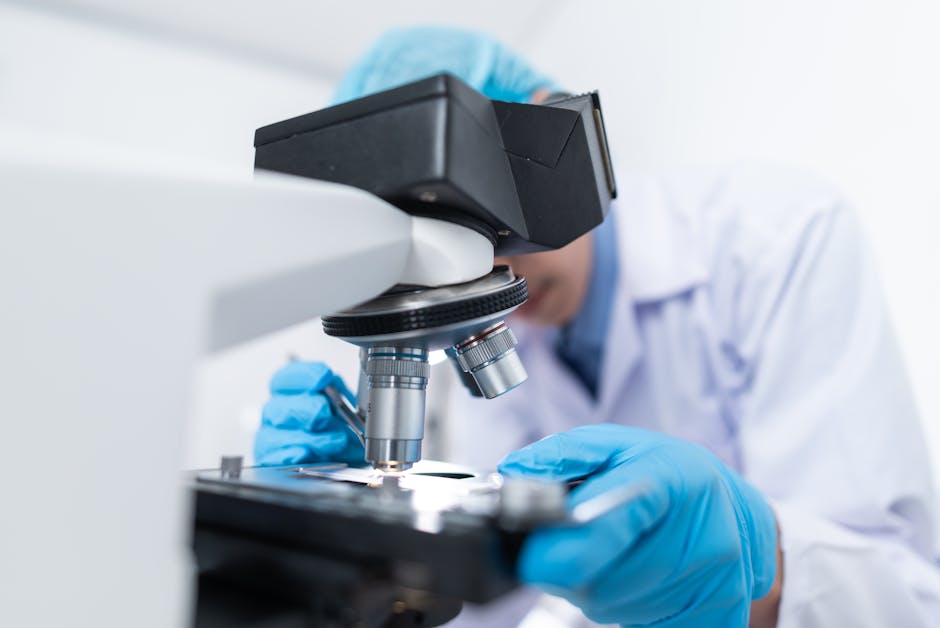For decades, the path to a new medicine has been a gruelling marathon—a painstaking, expensive, and often frustrating journey of trial and error in drug discovery. Scientists have spent years, and pharmaceutical companies have invested billions, trying to understand the intricate dance of molecules within our bodies to find a key that fits a specific disease-causing lock. But today, the starting gun for that marathon has been moved dramatically forward, thanks to a monumental leap in artificial intelligence from Google DeepMind.
The game-changer is called AlphaFold 3.
What is AlphaFold 3? Google’s Revolutionary AI Explained
For those who followed the breakthrough of the original AlphaFold, which stunned the scientific world by accurately predicting the 3D shapes of proteins, this new version is nothing short of a revolution. While its predecessor was a master at mapping individual protein structures, AlphaFold 3 goes a quantum leap further. It can predict not just the shape of proteins, but how they interact with a vast array of other molecules, including DNA, RNA, and crucially, the small molecules that form the basis of most drugs.
In simple terms, if AlphaFold 2 gave us the blueprint of a single engine part, AlphaFold 3 gives us the blueprint of the entire engine in motion, showing how all the parts connect and work together. This holistic view is the holy grail of drug discovery.
How AI is Accelerating Scientific and Drug Discovery
The implications of this new AI for drug discovery are staggering. The traditional method involves screening thousands, sometimes millions, of compounds in a lab to see if one sticks. It’s like trying to find the right key for a lock by trying every key on a giant ring. AlphaFold 3 allows scientists to perform this screening virtually, with incredible speed and accuracy. It can model how a potential drug molecule might bind to a target protein, predicting its effectiveness before it’s even synthesised in a lab.
This ability to simulate biology compresses years of painstaking laboratory work into mere hours of computation. It dramatically slashes the cost and time associated with the early, high-failure stages of research, allowing scientists to focus their resources on the most promising candidates.
Implications for India: The Pharmacy of the World
For a nation like India, often called the “pharmacy of the world,” this is a particularly significant development. While India excels in manufacturing generic medicines, a tool like AlphaFold 3 can supercharge its domestic research and development. Our brilliant scientists at institutions like CSIR and ICMR, as well as our burgeoning biotech startups, can now leverage this predictive power to tackle diseases that disproportionately affect our population—from new strains of tuberculosis to complex genetic disorders. It democratises the cutting edge of science, putting a powerful tool in the hands of researchers everywhere.
Beyond the Hype: A Powerful Tool, Not a Magic Wand
Of course, AlphaFold 3 is not a magical cure-all. It is a powerful prediction engine, an incredibly sophisticated guide that points researchers in the right direction. The predictions made by the AI will still need to be validated through rigorous laboratory experiments and, eventually, human clinical trials. The final, arduous steps of ensuring a drug is safe and effective for humans remain unchanged.
But what has changed is the very beginning of the journey. Google, through its subsidiary Isomorphic Labs, is already partnering with pharmaceutical giants to apply this technology to real-world drug design challenges. The aim is to move from a process of discovery by chance to a process of design by intention.
In the grand narrative of scientific progress, there are moments of incremental improvement and moments of fundamental transformation. The arrival of AlphaFold 3 feels firmly like the latter. It’s a testament to how human ingenuity, amplified by artificial intelligence, can unlock the deepest secrets of biology. This isn’t just a win for Google; it’s a massive win for scientific discovery, for medicine, and for the future of human health.




